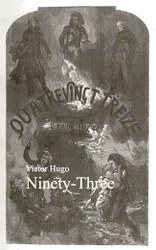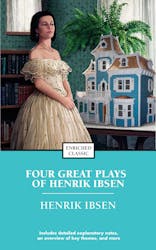A Doll's House is a three-act play in prose by Henrik Ibsen. The play is significant for its critical attitude toward 19th century marriage norms. It aroused great controversy at the time, as it concludes with the protagonist, Nora, leaving her husband and children because she wants to discover herself. Ibsen was inspired by the belief that "a woman cannot be herself in modern society," since it is "an exclusively male society, with laws made by men and with prosecutors and judges who assess feminine conduct from a masculine standpoint." Its ideas can also be seen as having a wider application: Michael Meyer argued that the play's theme is not women's rights, but rather "the need of every individual to find out the kind of person he or she really is and to strive to become that person." In a speech given to the Norwegian Association for Women's Rights in 1898, Ibsen insisted that he "must disclaim the honor of having consciously worked for the women's rights movement," since he wrote "without any conscious thought of making propaganda," his task having been "the description of humanity." In 2006, the centennial of Ibsen's death, A Doll's House held the distinction of being the world's most performed play.

Ett dockhem (lättläst)
Henrik Ibsen
book
Ett dockhem
August Strindberg
audiobookbook
Father Goriot
Honoré De Balzac
audiobookbook
De små tingens gud
Arundhati Roy
book
Pengar
Victoria Benedictsson
book
Tyskland - En vintersaga
Heinrich Heine
book
Ninety-Three
Victor Hugo
book
Dvärgen
Pär Lagerkvist
audiobookbook
Slutet på historien
Graham Greene
book
Ingenbarnsland
Eija Hetekivi Olsson
audiobookbook
En dåre fri
Beate Grimsrud
audiobookbook
Le Morte D' Arthur
Thomas Malory
book



